From boosting the garden to giving us fresh greens in the winter, people all over the world have been enjoying the many uses of alfalfa for centuries. This guide covers 6 of the ways I use the alfalfa plant in my life. Hopefully, you’ll see just how much you’ve been missing out on this incredibly versatile and beneficial plant!
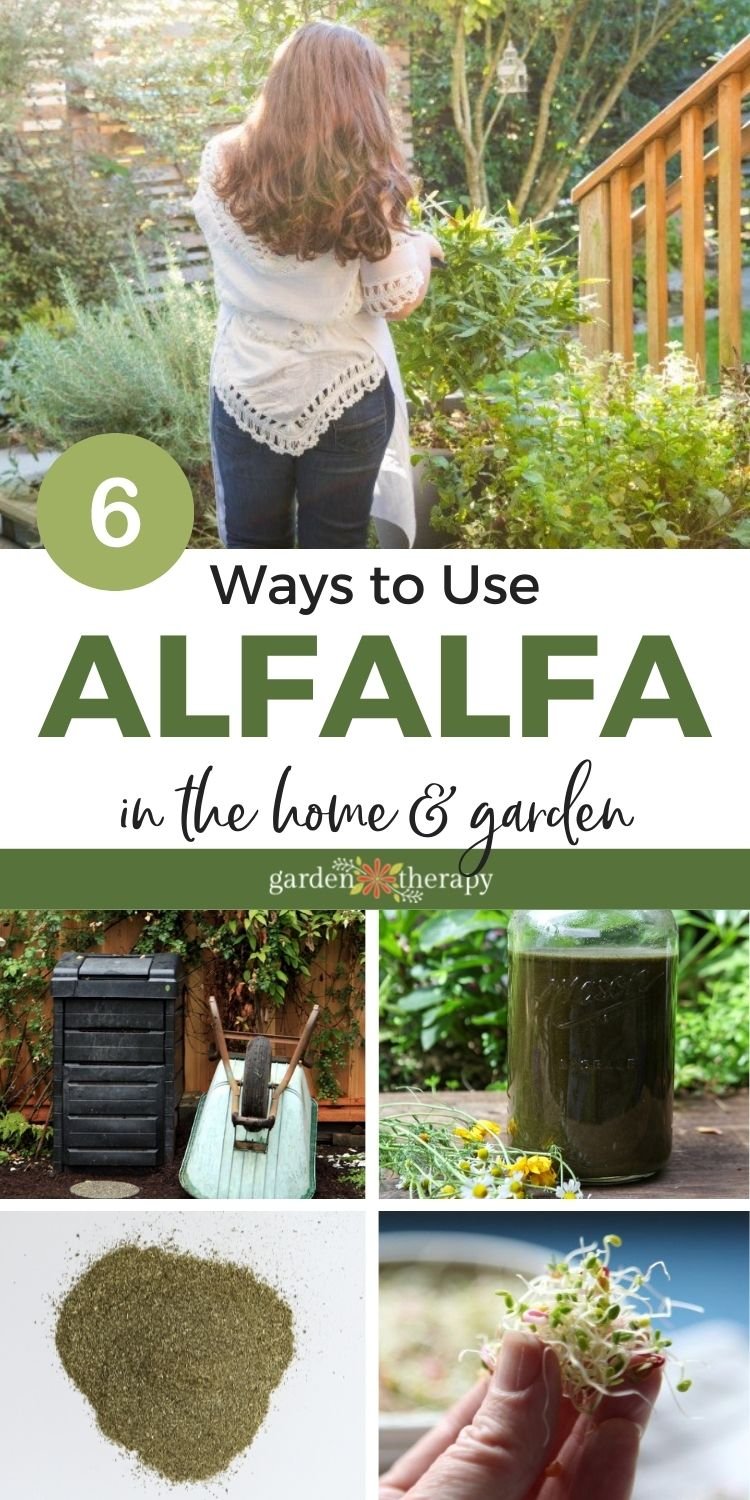
What is Alfalfa?
A flowering plant in the pea family, Medicago sativa is a highly prized crop all over the world. Often known as a major source of livestock feed, the alfalfa seeds, leaves, and sprouts have many uses all over the world.
Benefits of Alfalfa in Humans
Packed full of medicinal and nutritional properties, there are many benefits to consuming alfalfa. Most notably, it is high in vitamin K with a single serving of the plant providing 13% of your daily allowance. It also has other nutrients including vitamin C, copper, manganese, and folate.
Due to the high levels of saponin, a plant compound known for lowering cholesterol, it is good for doing just that and helps to lower your risk of heart disease, stroke, and diabetes.
Alfalfa is also known for relieving menopause symptoms, improving metabolic health, and has antioxidant properties.
These are just some alfalfa benefits, but there are also many more uses for this wondrous plant. Let’s talk about some! Here are 6 ways to use alfalfa at home and in your garden!
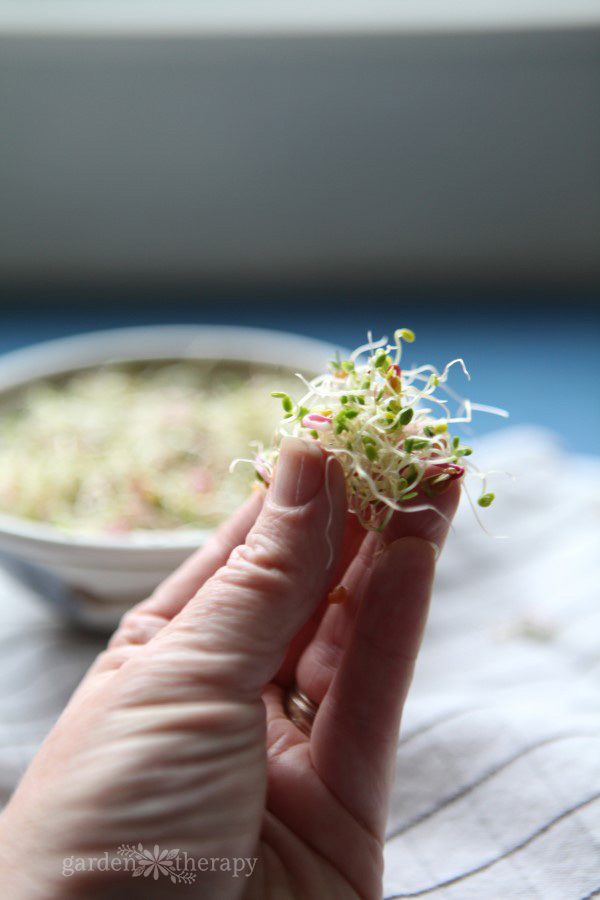
1. Enjoy Alfalfa Sprouts
One of my favourite ways to enjoy alfalfa is by eating its crunchy little sprouts! A very popular sprouting option, the taste goes well with pretty much anything. They have a mild flavour that is sweeter and fresher when the sprouts are yellow. While mild in taste, they pack a ton of nutrients.
Since the mature leaves taste bitter, the immature sprouts of the alfalfa plant will be much more enjoyable. They’re easy to grow right on your countertop, ready to eat in a matter of a few days. High in vitamin K and C and low in calories, they are a good source of fresh greens that you can grow year-round.
I like to add my sprouts to sandwiches, salads, stir fry, soups, and smoothies. The flavour of a sprout mix and spice make them not shy in a dish and you will surely want to harvest more to eat right away.
Another alternative for eating alfalfa sprouts is growing microgreens. Instead of sprouting in a jar or container, they are planted in a thin layer of soil instead. Whichever way you decide to grow them, you will get the same alfalfa benefits.
Alfalfa sprouts are completely safe for humans to eat. Most sprouts can carry foodborne illnesses, but properly handling and growing will make your sprouts completely safe for consumption. Always buy safe, disinfected alfalfa seeds and make sure all equipment is sanitized when growing. Follow the guidelines and trust your nose to sniff out any bad sprouts.
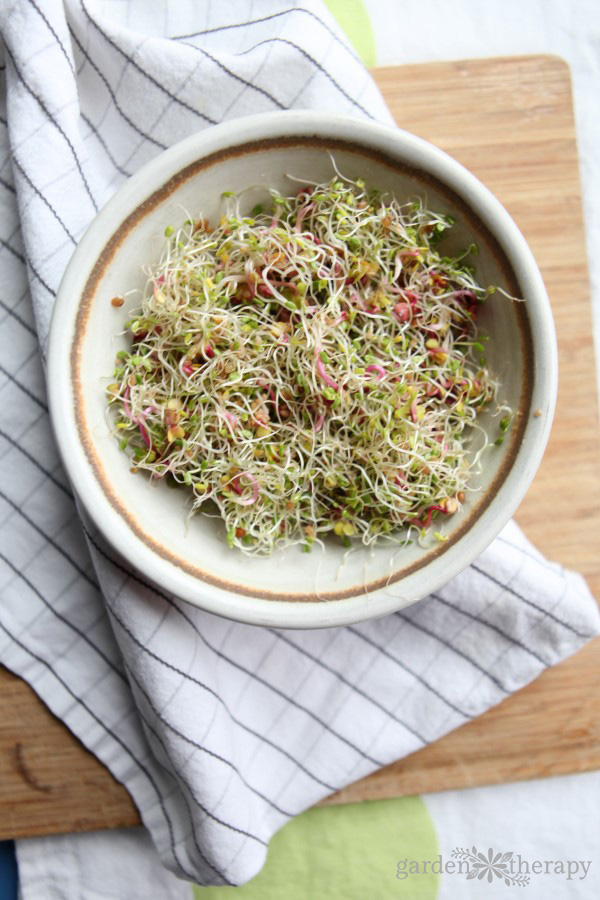
2. Make a Hair Booster
Considered a superfood, the high levels of vitamins A, C, E, and K and the antioxidants in alfalfa have people searching for even more health benefits of this popular plant. If you have luscious hair in mind, you might want to consider the alfalfa spouts nutritional benefits.
Nutrition and hair loss have been heavily linked. Whenever the body is not getting enough nutrients, it will prioritize the digestive and cardiovascular systems rather than hair and skin cells. Anytime you get all the vitamins and nutrients you need, you can expect to produce healthy hair.
Alfalfa can be enjoyed as a supplement or capsule, or you can grow it yourself like me! People add it to their smoothies but you should note that alfalfa juice by itself is very strong tasting. It is best to dilute it with other drinks.
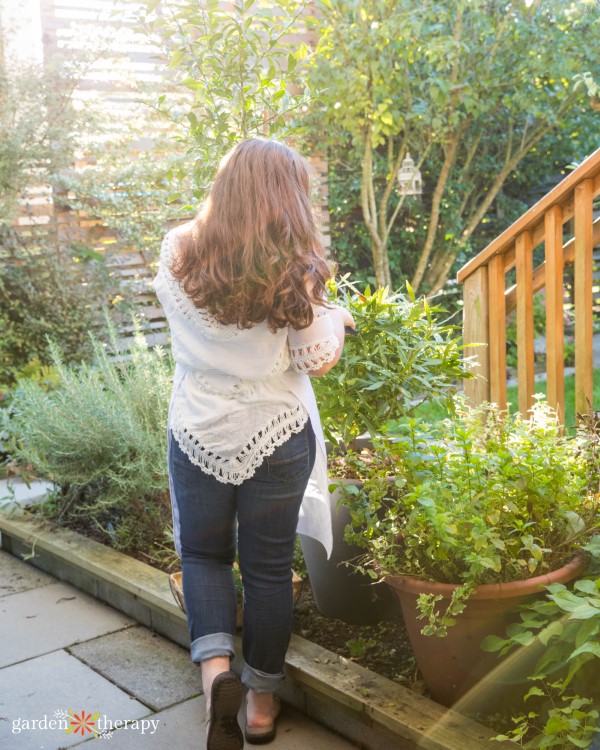
3. Use Alfalfa as Green Manure
Green manure is a crop that is grown with the intention of improving soil quality. Most legumes are a popular choice and alfalfa plants work as excellent green manure. They can act as a cover crop during the winter to protect bare beds against the cold weather.
Think of it as living mulch! Cover crops also reduce soil erosion and help to keep weeds in check.
You plant the alfalfa in the fall and then dig up the plant and integrate it come spring to improve the soil.
For a brand-new bed, you can also plant it in the spring and let it flourish for the season before you overturn it into the soil. The high levels of nitrogen, vitamins, and minerals will be a great boost for the soil.
4. Grind Up a Compost Accelerator
If you don’t feel like waiting for your compost to break down all on its own, alfalfa can help! Since the plant decomposes rapidly, it generates a fair amount of heat that helps to accelerate the compost.
By grinding alfalfa and other dried herbs and adding them to your compost, you can have it broken down and ready in 4-6 weeks. It also helps to make your compost have even higher nutrient levels.
Other great herbs to add to the compost pile include nettle, dandelion, chamomile, yarrow, valerian, and more.
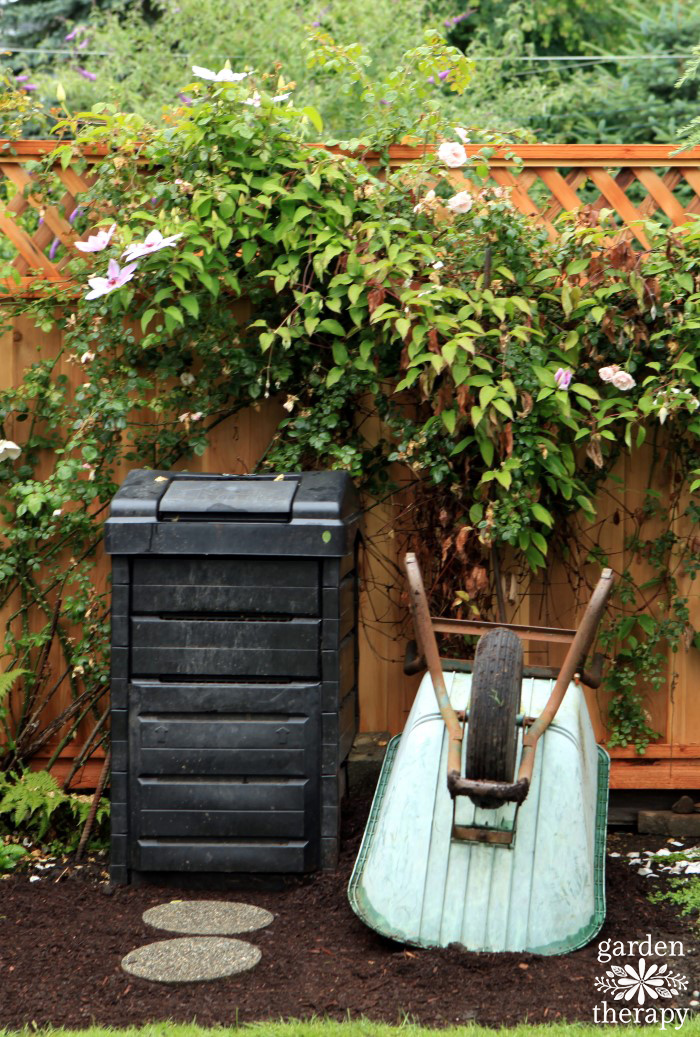
5. Whip up a Garden Fertilizer
You may have seen alfalfa meal floating around at the garden centre. The meal is a source of nitrogen and potassium, plus a broad spectrum of other minerals, vitamins, amino acids, and the growth hormone triacontanol.
When you use it as a fertilizer, it helps to improve the soil structure and plants’ ability to access nutrients.
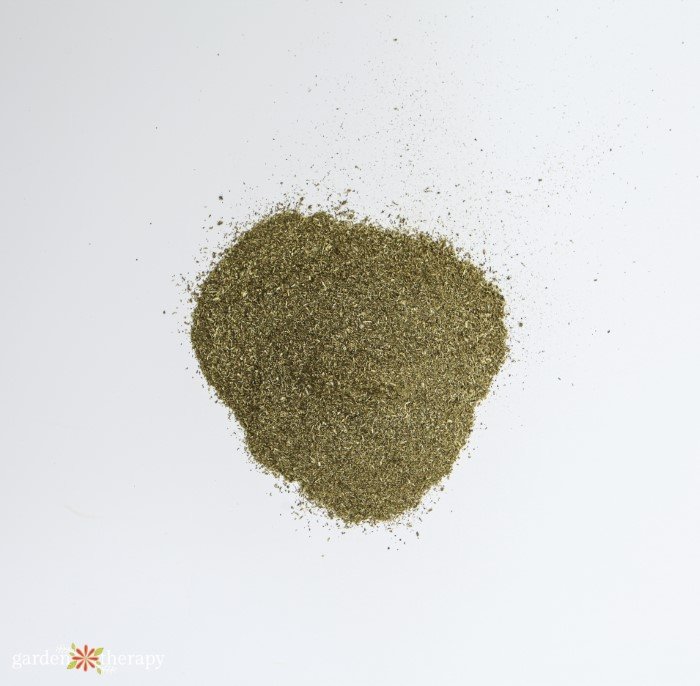
The NPK for alfalfa meal is 3-0-3. It is a good option for making your own plant-based fertilizer. Alternatively, you can combine 4 parts alfalfa meal with 1 part bone meal for a simple two-ingredient granular blend.
6. Make an Alfalfa Tea for Seedlings and Roses
Since it has the growth hormone triacontanol, this alfalfa tea is a great fertilizer for seedlings when applied after they have developed their first two true leaves. The American Rose Society also sings its praises and recommends feeding homebrewed alfalfa tea to roses and perennials.
This recipe comes straight from my book, Garden Alchemy. In it, you can learn even more about creating your own fertilizers, potting mixes, plant elixirs, pest deterrents, and more. Alfalfa tea is just scratching the surface of the 80 recipes included in the book!
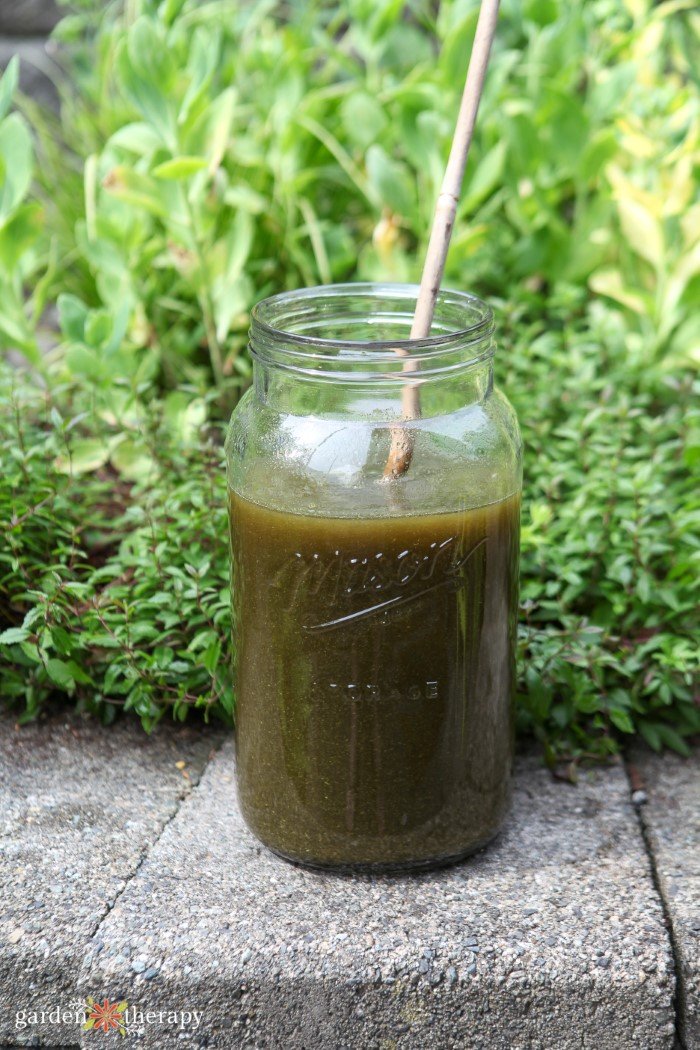
You can easily adjust the volume of this recipe for your garden needs. For a smaller amount to feed seedlings, add the ingredients to a large, glass Mason jar with a lid and infuse in a warm place in direct sunlight. For a larger amount to feed roses and perennials, add the ingredients to a 5-gallon bucket or large bin.
Materials
To see exact measurements, view the recipe card at the end of this post.
- Alfalfa meal
- Rainwater or dechlorinated water
Make It!
Measure the ingredients and add them to the container of your choice. Stir well, cover with a lid, and set in the sun. For best results brew for at least 36 hours, stirring at least twice a day.
The brew is ready when the solid material settles at the bottom and the liquid above is an orange colour. It should smell sweet and fresh, like hay.
To apply, move the tea out of the sun to cool, and then stir the ingredients again. Pour the tea directly from the jar or bucket onto your plants, being careful not to displace soil and roots. Strain the mixture through a pillowcase if you prefer to add it to a watering can.
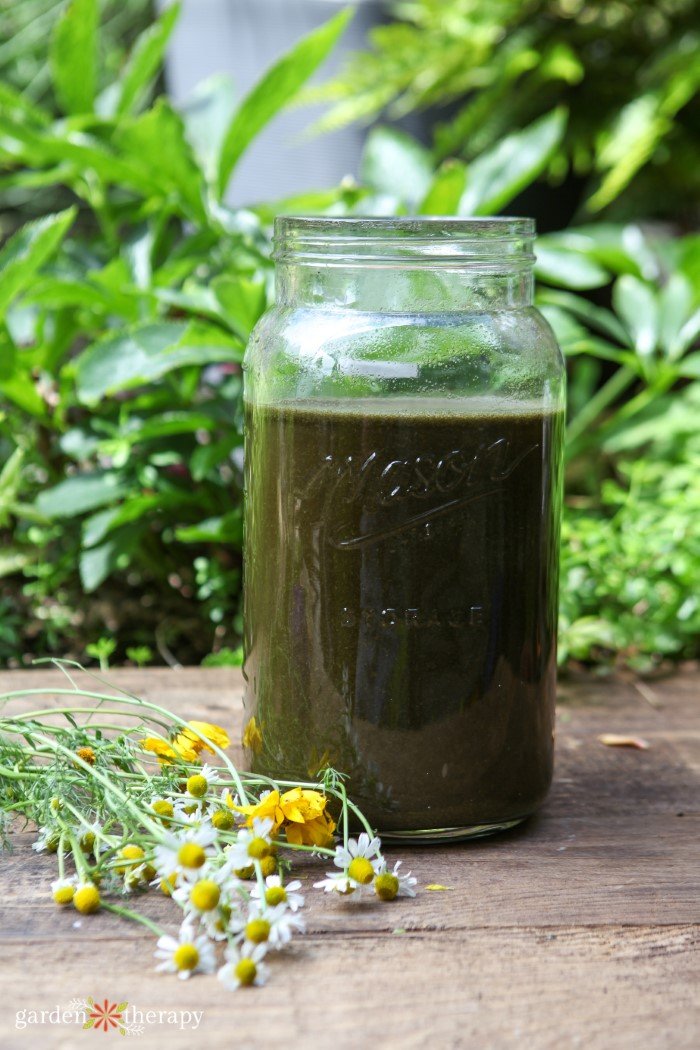
As you can see, this powerhouse plant deserves a spot in your garden! With just a little effort, you’ll be able to reap the many benefits of alfalfa.

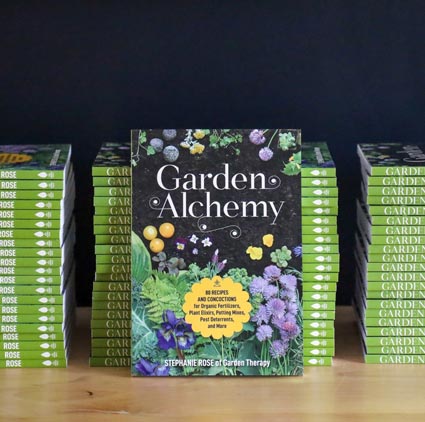
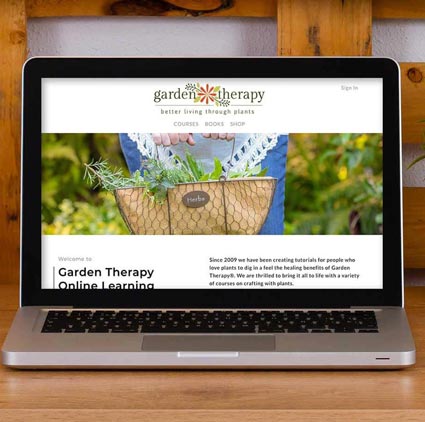

I love alfalfa sprouts. Thank you for these tips.
where is the recipe card? please give measurements for making the alfalfa tea for plants